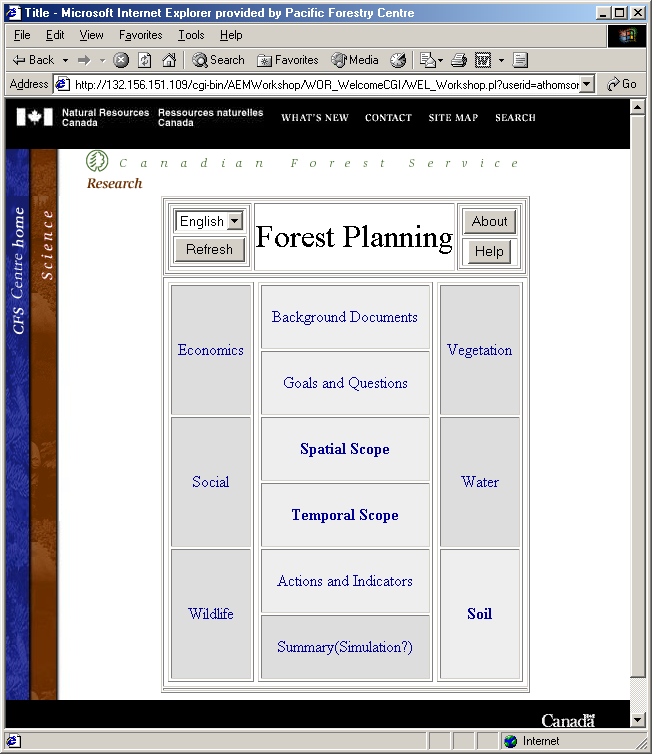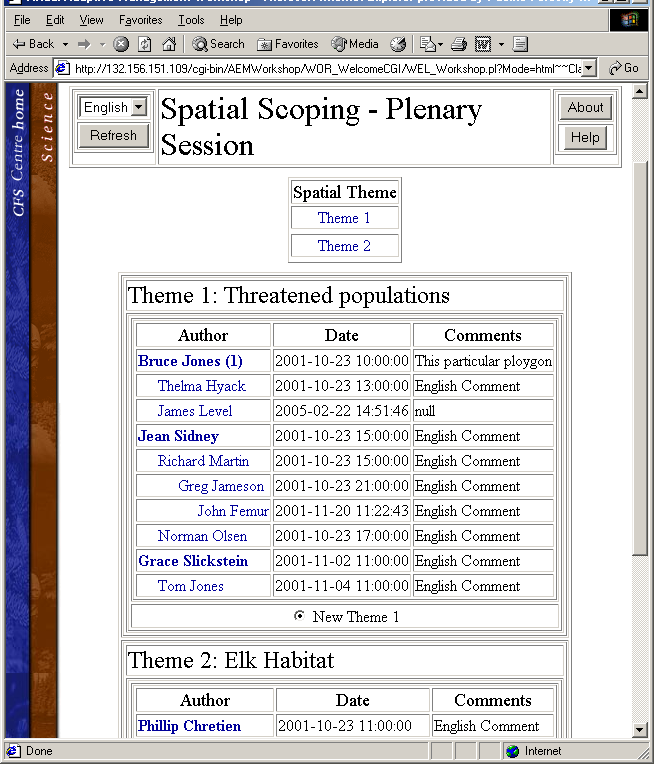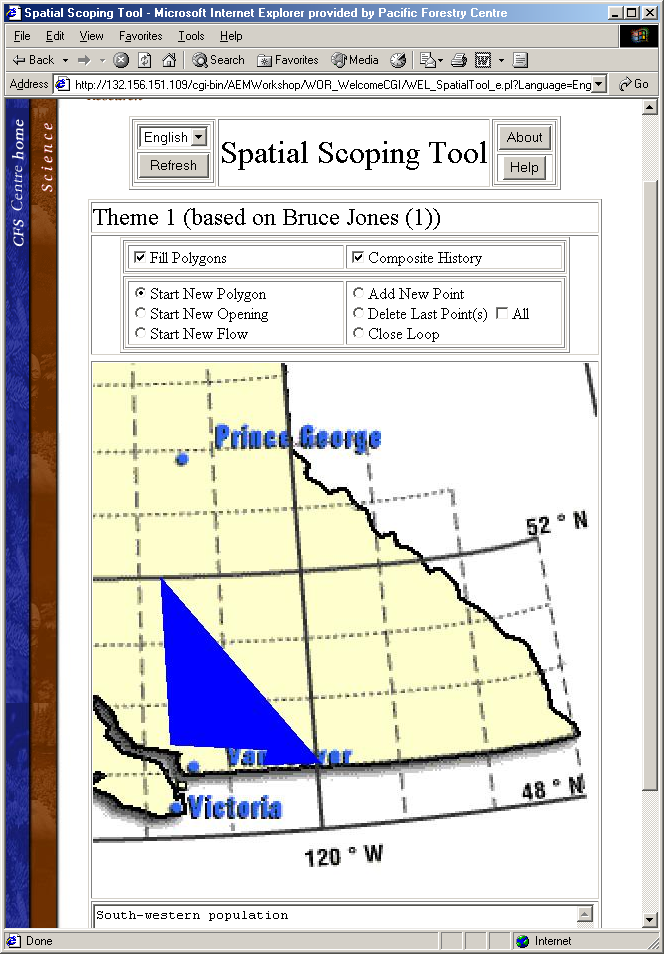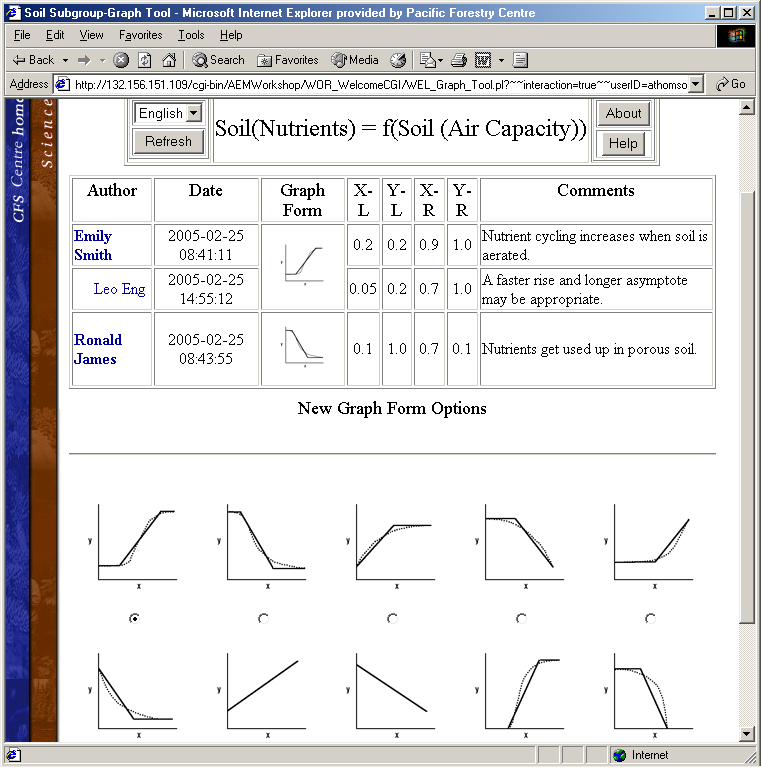|
Alan J. Thomson
B.Sc. DLSHTM M.Sc. Ph.D
Victoria, BC, Canada
email: ajthomson@AdaptiveKM.com
Adaptive Management:
Adaptive Management is a structured process for decision making in the face of uncertainty. Different definitions of Adaptive Management emphasise different facets of the process. One definition is
a formal process for continually improving (resource) management policies and practices by learning from the outcomes of operational programs. Its most effective form, active adaptive management, is characterized by management programs that are designed to experimentally compare selected policies or practices by testing alternative hypotheses about the system being managed. From Glossary of Forestry Terms: adaptive management rigorously combines management, research, monitoring, and means of changing practices so that credible information is gained and management activities are modified by experience
The process is iterative, using system monitoring to reduce uncertainty:

Characteristics of processes suitable for Adaptive Management:
- Some kind of management decision must be made
- Stakeholders can be engaged
- Management objective(s) can be stated explicitly
- Decision making is confounded by uncertainty about potential management impacts
- Resource relationships and management impacts can be represented in models
- Monitoring can be designed to inform decision making
- Progress in achieving management objectives can be measured
- Management actions can be adjusted in response to what has been learned
- The whole process fits within the appropriate legal framework
Virtual Adaptive Management Workshops:
Adaptive Management Workshops play a central role in Adaptive Management processes. Thomson (2000) developed an applet-based virtual workshop environment that mimicked the face-to-face workshop but extended the spatial and temporal limitations, broadening the possibilities for participation. Limitations of applets led to development of an XML-based server-deployed Java system that was the basis of the process described in Thomson (2006, 2007). The role of indicators in these participatory process is explored in Thomson (2005).
New Google-based tools (Thomson 2008), wikis or social media offer new approaches to online participation and debate.
Examples of the interface are illustrated below:

Figure: The virtual AM workshop for a hypothetical evaluation of Grizzly Bear population management, showing the functions of the plenary session and their status, as well as the available subgroups. The shading and bolding pattern represents a workshop in progress: in light grey cells bold text represents open and normal text represents closed; darker grey shading represents a pending activity not yet open for interaction. Note the possibility of multi-lingual participation.

Figure: Tracking debate about spatial scoping in the plenary session.

Figure: The spatial scoping tool ready for a new user to provide their perspective on an earlier entry.

Figure: A tool for debating the form of relationships between indicators, reflecting different hypotheses.
References:
Thomson, A.J. 2000. Knowledge elicitation tools for use in a virtual Adaptive Environmental Management workshop. Computers and Electronics in Agriculture 27: 57-70.
Thomson, A.J. 2005. Indicator-based knowledge management for participatory decision-making. Computers and Electronics in Agriculture 49: 206-218.
Thomson, A.J. 2006. Adaptive Management of Knowledge Ecosystems. In: Proc Conf. "Sustainable forestry in theory and practice: recent advances in inventory and monitoring, statistics and modelling, information and knowledge management and policy science." University of Edinburgh, Edinburgh, UK. 5th - 8th April 2005. Gen. Tech. Rep. PNW-GTR-688. Portland, OR: U.S. Department of Agriculture, Forest Service, Pacific Northwest Research Station. [CD-ROM]
Thomson, A.J. 2007. How should we manage Knowledge Ecosystems? Using Adaptive Knowledge Management! Chapter 27 in: Reynolds, K., Thomson, A., Köhl, M., Shannon, S., Ray, D., and Rennolls, K. (eds.) 2007. Sustainable Forestry: From Monitoring and Modelling to Knowledge Management and Policy Science. CABI Publishing, Wallingford, UK: 461- 479.
Thomson, A.J. 2008. Google Earth as a tool for participatory 3-D modelling and elicitation of Traditional Ecological Knowledge (TEK). In: Proc Mountain Forum e-Conference "Mountain GIS e-Conference: Promoting Geographic Information and Earth Observation Applications for the Sustainable Development of the Hindu Kush-Himalayan Region", 14-25 January, 2008.
| 



